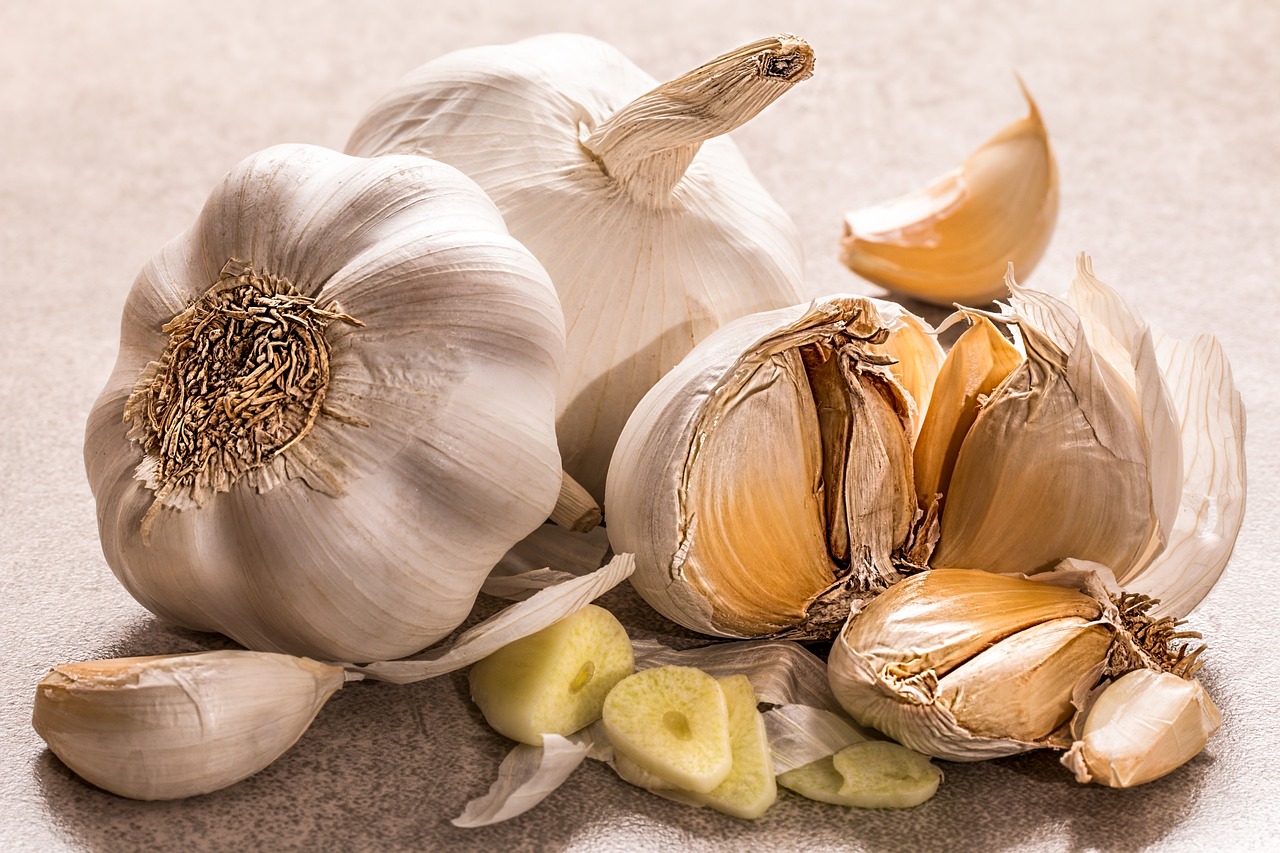
Garlic, or Allium sativum, has been used for culinary and medicinal purposes for thousands of years. Its strong flavor and various health benefits highlight its significance beyond cooking. Nutritionally, a 100-gram serving of garlic provides 149 calories, 6.36 grams of protein, 33 grams of carbohydrates, and 2.1 grams of fiber. It also contains 31.2 mg of vitamin C, 181 mg of calcium, 1.7 mg of iron, and 401 mg of potassium. Additionally, garlic is abundant in bioactive compounds like sulfur-containing compounds, flavonoids, and antioxidants, enhancing its health-promoting properties. This article explores different health benefits of garlic as listed below-
- Boost immunity- The main compound in garlic that enhances immune function is allicin, which forms when garlic is crushed or chopped. Garlic increases the activity of white blood cells like macrophages, lymphocytes, and natural killer cells that are crucial for identifying and eliminating pathogens such as bacteria and viruses. This action helps the body respond better to infections. Garlic is recognized for its natural antibiotic properties, effectively targeting harmful bacteria while preserving beneficial ones. Research supports its effectiveness against various bacteria, including antibiotic-resistant strains. Historically used for treating bacterial infections, garlic is now validated by modern studies for its ability to reduce the risk of secondary bacterial infections due to its antibacterial properties. Cytokines are proteins essential for immune regulation, particularly in inflammation and immune cell activation. An overload of cytokines, termed a cytokine storm, can lead to severe inflammation and tissue damage, weakening the immune response. Garlic aids in regulating cytokine production, which helps prevent excessive inflammation. Research indicates that garlic can modify cytokine levels to support an effective immune response, making it beneficial for managing chronic inflammatory issues that may impact immune function. Moreover, garlic is effective in preventing and treating respiratory infections by reducing congestion and improving breathing, thanks to its sulfur compounds. Blood serves as the key transport system for immune cells, nutrients, and oxygen, facilitating healing and defense against infections. Garlic enhances blood circulation by relaxing blood vessels and minimizing arterial plaque buildup, allowing immune cells to reach affected areas swiftly and improving the body’s response to infections and injuries. This improved blood flow optimizes immune system function, contributing to better overall health and disease resistance. Additionally, garlic can lower cortisol levels, helping the body manage stress, which in turn supports more efficient immune function. In women, garlic aids hormonal balance by promoting estrogen production, which is important for immune regulation.
- Improve heart health- Garlic is recognized for its health benefits, particularly for heart health. Research shows it can reduce cardiovascular disease risk factors, improve cholesterol levels, lower blood pressure, and enhance overall heart health. A key benefit is garlic’s ability to lower blood pressure, which is important as hypertension increases the risk of heart attacks and strokes. This effect is largely due to allicin, a sulfur-containing compound in garlic that relaxes and widens blood vessels. Additionally, garlic lowers low-density lipoprotein (LDL) cholesterol, known as “bad” cholesterol, by inhibiting the enzyme that synthesizes cholesterol in the liver. Atherosclerosis, characterized by the hardening and narrowing of arteries from plaque buildup, significantly contributes to heart disease. Garlic can help prevent atherosclerosis by inhibiting the oxidation of LDL cholesterol, which is essential for plaque formation. Its antioxidants, including allicin and selenium, shield the heart and blood vessels from oxidative damage. Additionally, garlic may reduce plaque buildup, with aged garlic extract potentially preventing new plaque formation and shrinking existing plaque, improving blood flow and lowering heart attack risks. Moreover, garlic possesses anticoagulant properties that help prevent blood clots, reducing the chances of heart attacks or strokes by inhibiting the clumping of blood platelets.
- Promote digestive health- Garlic serves as a prebiotic, feeding beneficial gut bacteria and promoting a balanced gut microbiome. It helps the growth of Lactobacillus and Bifidobacterium, which improve digestion, nutrient absorption, and prevent gastrointestinal issues. By enhancing enzyme production and reducing inflammation, garlic supports optimal nutrient uptake from food.
Precautions- Excessive garlic consumption can lead to digestive issues like gas and bloating. Some people may also have allergic reactions, experiencing symptoms like skin rashes and headaches. Additionally, garlic’s blood-thinning properties may interact with blood-thinning medications, so those on such treatments should consult a healthcare professional before using garlic supplements.
-Triparna







